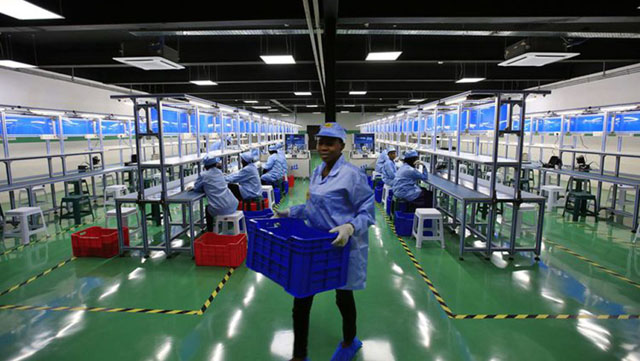
Business activities in the country fell for the fifth consecutive month in November as inflationary pressures remained elevated, the latest monthly Purchasing Managers Index (PMI) by Stanbic IBTC Bank has shown.
The report released, yesterday, showed the headline index declined to 49.6 in November from 46.9 in October.
A PMI reading above 50.0 signals an improvement in business conditions, while those below show deterioration. The report attributes the sustained decline to persistent inflation and muted demand conditions, which had dampened business activity in the private sector.
“Rates of inflation in the Nigerian private sector remained elevated in November, further hampering business operations. There were some signs of improvement midway through the final quarter as new orders returned to growth and the decline in output softened. That said, employment was down and companies continued to lower their purchasing amid steep price pressures. Although there were some tentative signs of demand improving, companies reported that customers were often deterred by high prices,” the report said.
The inflationary environment and muted demand conditions meant that business activities continued to fall. Sector data pointed to increases in output in agriculture and manufacturing, but decreases in wholesale and retail and services.
Purchase costs rose rapidly again in November amid currency weakness and higher prices for fuel and raw materials. Although slowing slightly for the second month running, the pace of inflation remained elevated. Staff costs were also up as companies helped their workers with higher living and transportation costs.
In response to increasing input costs, output prices also continued to rise at a substantial pace midway through Q4.
The muted demand environment and high prices for inputs led companies to reduce both their purchasing activity and stocks of inputs in November.
“Employment was also down, thereby ending a six-month sequence of job creation. Companies continued to lower their backlogs of work, while there was also a lack of pressure on capacity at suppliers. Quiet road conditions, prompt payments and competition among vendors also helped result in a further shortening of suppliers’ delivery times. Business confidence continued to wane in November and hit a fresh record low. Some firms remained optimistic in the outlook for output, however, amid business expansion and investment plans.
Despite the overall decline, sector-specific data revealed mixed outcomes. The agriculture and manufacturing sectors experienced modest increases in output while the wholesale, retail and services sectors recorded decreases.”
Head of Equity Research West Africa at Stanbic IBTC Bank, Muyiwa Oni, said there appeared to be a disconnect between the composite PMI and non-oil GDP growth in recent quarters, with this disconnect more pronounced in Q3 when the PMI for the quarter weakened to 49.6 points, a sign of deterioration in business conditions, while non-oil GDP growth was strong in the review period.






